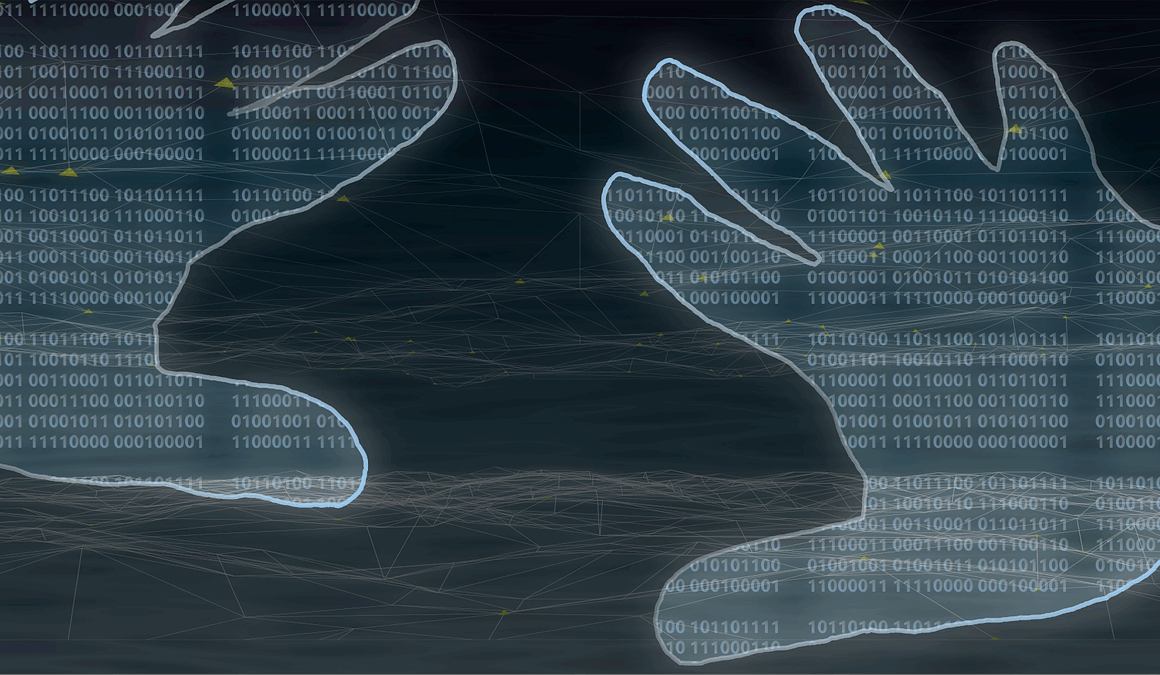How Decentralized Identity Solutions Enhance Blockchain Privacy
In the era of digital transformation, privacy remains a critical concern, particularly with advancements in blockchain technology. Decentralized identity solutions offer a promising avenue to address these privacy issues effectively. By implementing decentralized identities, users are empowered to control their personal data and share only the information they choose. This shift from centralized databases to user-controlled systems drastically reduces the risk of data breaches, as there is no single point of access. Blockchain inherently supports this validation process, ensuring that transactions involving personal data retain their integrity and confidentiality. The combination of decentralized identity with blockchain fosters an environment where privacy is paramount, and users feel secure in their online interactions. These solutions leverage cryptographic principles, enhancing the reliability of user claims by safeguarding sensitive information from third-party access. Privacy on the blockchain is not just beneficial; it expands possibilities for businesses and individuals alike. With decentralized identification, trust is built naturally, leading to enhanced user engagement and adaptive business models. The potential to maintain complete privacy leads to increased participation in decentralized networks and could revolutionize industries reliant on personal information.
The advantages of decentralized identity solutions extend beyond mere privacy; they facilitate greater transparency within the blockchain ecosystem. Storing identities on blockchain allows for a secure, immutable ledger that captures vital information, which is easily verifiable by any participant. Rather than relying on trusted entities to validate identity, the technology ensures consensus among users, which promotes a more decentralized and equitable ecosystem. Furthermore, with this transparency, businesses can engage in streamlined compliance with regulations without compromising user privacy. The transparency afforded by blockchain allows for real-time verification processes during transactions, making operations quicker and more efficient. As decentralized identities rely on cryptographic signatures, they offer a potent tool for combating identity theft and fraud. This significantly reduces potential risks for businesses and enhances their overall reputation. For industries such as finance, healthcare, and supply chain, having a verifiable identity can also simplify KYC processes, ensuring efficient onboarding while keeping users’ sensitive data secure. The integration of blockchain with decentralized identities ultimately cultivates trust between users and services, paving the way for innovative developments within sectors reliant on sensitive information.
Technological Framework of Decentralized Identity
The technological framework supporting decentralized identity solutions consists of various protocols and standards designed to streamline identity management across platforms. Primarily, these identities are anchored on blockchain networks, enabling users to assert their identity via cryptographic keys. Owners of decentralized identities can retrieve their credentials without centralized intermediaries, providing an unprecedented level of control. Notably, standards such as Self-Sovereign Identity (SSI) outline how individuals can manage their identities in a digital world. SSI emphasizes user agency where users dictate the terms of information sharing, mitigating unnecessary exposure of personal data. The integration of smart contracts enhances verification processes further, allowing automated functions based on predefined conditions. This means transactions can occur without intermediaries affirming truthfulness, creating an efficient and decentralized experience. Protocols like Decentralized Identifiers (DIDs) facilitate the creation of unique identity markers allowing for the secure generation of public-private key pairs. Combined with verifiable claims, users can present information about themselves without disclosing sensitive data directly. Essentials such as authentication and authorization are seamless and secure, strengthening overall trust within digital environments which initiate decentralized identities.
The impact of decentralized identity solutions is profoundly felt within various industries, particularly in sectors like finance, healthcare, and supply chains where privacy regulations are stringent. These sectors greatly benefit from the ability to access user credentials while preserving user anonymity. For instance, in financial services, the Know Your Customer (KYC) process can be significantly improved as users can share encrypted data effortlessly, thus maintaining privacy while ensuring compliance with regulatory requirements. This adaptability fosters efficiencies through reduced time spent on manual verifications, while maintaining robust security against fraud attempts. With healthcare data, patients can securely share relevant medical information with practitioners while ensuring confidentiality. Such a model combats data breaches that plague central repositories. Supply chain management also sees advantageous impacts, as decentralized identities allow for more secure and transparent tracking of goods and identities without exposing sensitive details. The frictionless interaction between participants not only assuages privacy concerns but also enhances trust among stakeholders. Therefore, decentralized identity solutions are crucial in promoting not just privacy but enhancing operational efficiencies across industries, ultimately leading to better service delivery and customer experiences.
The Role of Cryptography in Identity Solutions
Cryptography remains the cornerstone of decentralized identity solutions, crucial for ensuring both privacy and security in digital identities. Employing robust cryptographic algorithms helps maintain the integrity of shared data, preventing unauthorized access while establishing trust amongst parties. Encryption techniques like public-private key pairs allow users to create multiple cryptographic identities tied to their data, allowing anyone to acknowledge the information’s authenticity without revealing its content. Additionally, zero-knowledge proofs (ZKPs) empower users to demonstrate possession of certain attributes without disclosing the underlying data itself. This method drastically enhances privacy and offers a transparent way to prove identity in various transactions. The signature verification systems foster trust while allowing users to authenticate identities efficiently. By utilizing advanced mathematical functions and hashing techniques, the decentralized identity framework assures that data remains confidential and tamper-proof. With continuous evolvement in cryptographic protocols, decentralized identity solutions can adapt to rising challenges in privacy and security. As blockchain technology nurtures these security protocols, their integration further intertwines the roles of cryptography and decentralized identity in enhancing overall data privacy within digital infrastructures.
The adoption of decentralized identity solutions faces various challenges but also shows immense potential for reshaping sectors reliant on privacy. One of the most pressing obstacles is user awareness and understanding of how these solutions work, with many users remaining hesitant to embrace technologies unfamiliar to them. Educational initiatives and transparent practices may significantly play a role in overcoming apprehension, ensuring that users understand the controls in place to protect their information. Additionally, interoperability challenges arise as different blockchain platforms and identity systems can complicate seamless interactions. Solutions must emphasize uniform standards and protocols to allow diverse systems to communicate effectively. Regulatory landscapes also continue to affect adoption, as laws around data protection evolve to adapt to these technologies. Collaboration amongst industry players, developers, and regulators is crucial in formulating cohesive policies that support the growth of decentralized identity solutions while respecting privacy concerns. Furthermore, concerns regarding digital identity management on a global scale must be systematically addressed. Ultimately, overcoming these challenges alongside making use of the robust potential of decentralized identity solutions will set the future foundation for privacy in the blockchain landscape.
Future Prospects of Decentralized Identities
The future of decentralized identity solutions looks promising, with tremendous potential to revolutionize how individuals and businesses secure and manage sensitive information. As awareness increases, more businesses will likely implement these privacy-minded solutions to build stronger relationships with consumers. Stakeholders will find that their engagement deepens if users feel confident and secure about how their data is used. The trend of increasing regulatory scrutiny surrounding data privacy creates a favorable landscape for decentralized identities, as they inherently promote consent and transparency. Such responsiveness to emerging trends can result in more streamlined services tailored around user preferences. Future advancements in technology can accelerate innovation in identity verification processes, ensuring user ease while maintaining security. Integration with emerging technologies such as Artificial Intelligence (AI) and the Internet of Things (IoT) creates new avenues for decentralized identities to scale effectively. As companies increasingly observe the benefits associated with blockchain privacy structures, investments into decentralized identity development will likely grow. By fostering collaboration between industries and encouraging inclusive solutions for privacy concerns, the evolution of decentralized identities will shape the digital future more securely and equitably.
Implementing decentralized identity solutions catalyzes the intersection of blockchain technology and privacy, granting individuals full control over their personal data while ensuring secure interactions. The empowerment of users is a defining aspect of these solutions, differentiating them from traditional identity management frameworks. Instead of relying on a central authority, users maintain the sole authority over how their information is shared and utilized. This not only mitigates the likelihood of centralized databases being hacked but also enhances privacy by minimizing unnecessary data exposure. Decentralized identities are particularly beneficial in an age where data privacy concerns and regulations are on the rise. As users gain more awareness of data rights, they will increasingly demand privacy-centric solutions that put them in control. Furthermore, the adoption of decentralized identities can lead to improved user experiences by streamlining authentication processes while conserving personal information. This level of control fosters greater trust between users and service providers, resulting in more robust customer relationships. In this context, decentralized identity solutions serve a dual purpose: protecting user privacy and fortifying trust in digital transactions, thus establishing a secure foundation for future innovations.


